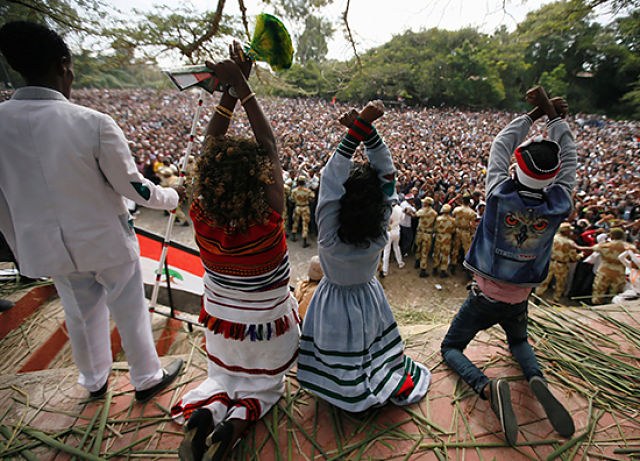October 3, 2016
Police arrest prominent Ethiopian blogger
New York – Ethiopian authorities should immediately and unconditionally release blogger Seyoum Teshome, the Committee to Protect Journalists said today. Police arrested Teshome on October 1, according to press accounts and opposition activists.
Seyoum is a frequent commentator on Ethiopian affairs who writes for the website Ethiothinkthank.com and lectures at Ambo University’s campus in Woliso, some 110 km (68 miles) southwest of capital Addis Ababa. Police arrested him from his home there, searched the house, and confiscated his computer, an Ethiopian journalist exiled in Nairobi told CPJ, speaking on condition of anonymity for fear of reprisal. Ethiopian bloggers also reported his arrest on social media.
It was not immediately clear what charges, if any, Seyoum faces. Ethiopia’s information minister, Getachew Reda, did not immediately respond to CPJ’s request for comment.
“This arrest of a prominent writer and commentator is deeply disturbing as it comes against a backdrop of government moves to stifle protests and criticism,” CPJ Deputy Executive Director Robert Mahoney said. “Seyoum Teshome should be released without delay and without condition.”
Seyoum is a prolific writer, and international media frequently seek him out for comment on events in Ethiopia. In a recent New York Times article on the Ethiopian marathoner Feyisa Lilesa, who crossed his arms in a sign of solidarity with anti-government protesters at the finish line of the men’s marathon at the Rio Olympics, Seyoum was quoted as saying the athlete’s symbolic protest action had struck a blow against the Ethiopian government’s carefully constructed image as a thriving developing state.
“This was what the government was afraid of,” he told the newspaper.

Protesters in Bishoftu, southeast of Addis Ababa, raise the Oromo protest sign ahead of an October 2, 2016, stampede that left more than 50 people dead after police fired teargas and warning shots to disperse the crowd. (Photo: Reuters)
On Sunday, dozens of protesters died in a stampede after police fired teargas canisters and warning shots to disperse an anti-government protest at a religious festival in the heartland of the Oromo people, where the protests have drawn the highest level of support. Human Rights Watch estimates about 400 protesters died in the seven months leading up to June.